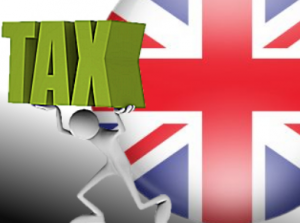Tax law is seen by many as long-winded, confusing, and boring, but in the case of UK gambling, its worth being aware of the tax laws, because they are very good to players in the country.To save you reading complicated legal documents, we’re here to provide a guide of everything you need to know about gambling tax in the UK.
How Does Gambling Tax Work in the UK?
The answer to that questions is as simple as it can be, it doesn’t.That isn’t to say that gambling tax doesn’t work in the UK, more that for players, it doesn’t exist. Whether you play at land-based or online casinos, sports betting sites, or lotteries, all winnings you receive from gambling are tax free in the UK.This is true at all levels as well, so whether you are a hobbyist who drops a little amount here and there, or a professional gambler who makes your wage out of poker tournaments or other gambling options, you will never have to pay a penny’s tax on anything you win.This was not always the case, betting duties were in place until 2001 in the UK, when then Chancellor of the Exchequer, Gordon Brown, did away with any taxes on gamblers.
Where Does the Money Come From?
This may seem like an odd decision on the part of the UK Government, who could certainly pick up a hefty sum by taxing players on their gambling winnings.However, it isn’t like the Government is losing out here, because various taxes on gambling operators that offer their services in the UK, bringing in close to £3 billion in gambling tax in 2016-17, which is expected to grow every year for the foreseeable future.
The UKGC
The UK Gambling Commission (UKGC) was formed as part of the Gambling Act 2005, which was created to deal with the changes brought about by the rapidly evolving online casino market.The UKGC regulate all casinos and sports betting sites operating in the UK, wherever they are based, and any gambling companies offering their services in the UK are liable to pay taxes on their profits, taxes that have risen since further law chances between the introduction of the Gambling Act and now.The decision to tax all sites operating in the UK came about when many companies moved offshore to countries with lower taxes for gambling companies, leaving the UK at a disadvantage, so it was ruled that the UK could tax any earnings made in the UK by operators, however kind the tax laws in their base jurisdiction may be.These means that all sites operating in the UK must pay a 15% tax on all earnings, which is where the profits for the Government come in.There isn’t any sign that any tax or duty on gambling winnings will be reintroduced at any point in the future, so the UK will remain an excellent place for gamblers who like to make use of all of their winnings, which is basically all gamblers!








